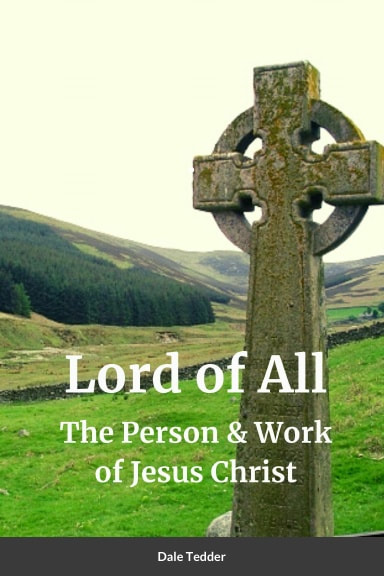|
Join us as we begin Lesson 4, which covers Acts 4:32-6:7.
0 Comments
CLICK HERE to listen to this week's devotional on the Walking Points Podcast, or listen to it on your favorite podcast platform. (For this devotional, there are two podcast episodes!!!) There's always extra content on the audio version that I pray will bless you. The Shape of Love Love is love. This unhelpful tautology has seemingly won the day with Christians and non-Christians alike. It works well as a slogan but offers little substance for how God calls us to live a life of love. Instead, the Bible teaches us there is a shape to love. The love God calls us to looks like something. It has content to it. It is first and foremost received from God, then directed back to God, and then, lived out toward neighbor. It’s sacrificial, others-centered, joyful, and obedient. This life of love is the Way of the Lord, and the reason for the title of this study. The Ten Commandments are an expression of the love Jesus commands in his summary of the Law. The great commandment is to love God with our whole being and the second commandment is like it, to love our neighbors as we love ourselves. But even that word from our Lord Jesus is general, and even vague. Yet he could speak in such a way because he knew he was summarizing something more detailed and specific, something his first-century audience would have understood. In speaking of the two great commandments, Jesus was really summarizing the moral Law of God, the Ten Commandments. The first table of the law, for example, which contains the first four commandments, focuses primarily, though not exclusively, on our love for God. The second table addresses the nature of neighbor-love, which as we learn throughout Scripture, is also an expression of our love for God. In other words, the way of loving God and neighbor looks like something specific. The commandments are not platitudes. They are concretely helpful. And the rest of Scripture is a commentary on what this love for God and neighbor looks like. The prophets, Jesus, and the apostles all shed light on the height, width, and depth of what it means to love God and others in the way God has prescribed in the Ten Commandments. More Than Meets the Eye By the time of the first century, many in the Jewish religious community had reduced the Ten Commandments to external rules and regulations that could be manipulated. But Jesus came along and reminded them that obedience to the Law had always involved the motives of one’s heart. It was not merely about behaving in the right way. It had always been about doing the right things, in the right way, for the right reason, with the right attitude. Of course, a standard like that immediately leads one to self-discovery, or at least it ought to. When you come to understand, for example, that “not murdering” another person is more than not taking the life of another person, but includes not hating them or being unrighteously angry toward them, you begin to realize how far you fall short. Furthermore, when you consider that each commandment carries with it a positive side, such as desiring that same person’s best interest and doing what you can to help them, then a legalistic framework really begins to crumble. Such a realization ought to cause us to run to the grace of God found in the work of Christ, for he was the only one who faithfully lived out a perfect life of righteousness. His sacrificial love on the Cross paid for our inability to live a life of perfect obedience to God’s Law. Morality Revealed by God What we learn as we study the Ten Commandments is that morality is fundamentally theological. That does not mean irreligious people cannot live moral lives, but it does mean when they do so, they are borrowing from a theistic framework. For their worldview cannot justify their way of living. There are secular forms of ethics. But those systems are usually forms of utilitarianism. They base their view of what is right and wrong on whether something works (whatever “works” means) for the common good (whatever “common good” means). A secular ethic is not grounded in that which is immutable, transcendent, and objective. It is not a revealed ethic. It is dependent on king or crowd. What is considered normal, or even good, is determined, so to speak, in the voting booth of public agreement and alignment. Absent from such a worldview and ethic is an objective standard, revealed by an immutable and transcendent Creator, who not only created the universe, but also each and every person, in God’s own image. Christians believe that having such an ethical standard is good, not only for individuals, but for families, communities, workplaces, societies, and ultimately, the world. A commitment to such an ethic does not mean every moral decision is clearly understood or that every command is easily interpreted and applied in every situation. But it does mean we have a firm foundation from which to start as we seek to faithfully live in this world. Real Freedom Contrary to popular notions, freedom does not mean being untethered to any moral restrictions in one’s life. Nor is desiring to obey God a form of legalism. Instead, we should understand that obedience to God is true love. And this kind of love produces real freedom, which is the ability to live the life for which we were created. That is not a life of legalism or bondage. The Law of God provides freedom to become all that God created and redeemed us to be, as well as delivering us from a path of self-destruction and potentially hurting others along the way. We don’t live this way in order to earn points with God, but such a life is evidence that God is doing a great work in us. God is molding and shaping us into something we cannot possibly imagine – his grand masterpiece – the very likeness of his Son. How could such knowledge lead us to anything but joyful and grateful obedience? The Heart The heart is the heart of the matter. God gave us his moral law to reveal to us his character and will for our lives. God’s Law does provide structure and rails to keep us safe. God revealed this way of life for us because he has our best interest at heart. He really does want what is best for us and thus has revealed the way for us to live. But more than that, in and through Christ, God has recreated us once again in his image. His very Spirit indwells us. God not only wants us to live this way because it is best for us. God wants our hearts. He wants us to desire to live this way because we love him, want to please and glorify him, and because we love others. He wants us to love what he loves. It is God’s sanctifying process for helping us become like him… in what we desire, the way think, how we speak, and in the manner in which we conduct ourselves in this world. And not only is this what is best for us here and now, but God is also training us for eternity. Thanks be to God. A Word About Each Lesson It will not take you long to see that some of the study questions have many Bible verses to look up. You might even say an obnoxious amount of Bible verses. And that’s true. But they are there for a few important reasons. First, they are included to show you how widely the Bible speaks on the particular commandment of each lesson. These Ten Commandments are not isolated only to Exodus and Deuteronomy. They are repeated, interpreted, and applied throughout the rest of Scripture. Second, the verses are there to reveal that God’s commands are not to be understood and applied in a simplistic fashion. The Ten Commandments are not only prohibitions. That is, they are not only forbidding us to behave in certain ways, but they also point us to the birthplace of those behaviors. Our desire for sin festers in the human heart and sometimes finds its ways into our thought-life, as well as the words we speak and the actions we take. Third, the variety of Scripture is there to remind you that there are positive, godly ways to live out the commands. The Ten Commandments are not merely a list of things not to do. They also guide us in a God-honoring, life-affirming, Christlike way of living in this world. The Last Reason for All the Scripture And that brings us to the last reason for all the verses, which is also why we have the Law in the first place. The first time I read the Sermon on the Mount, with a level of maturity and understanding, I immediately understood how far short I fell of living according to this standard that Jesus had set before me. And frankly, I was distraught. What hope did I have of faithfully and consistently living in this way, even if I tried my best every single day? And who among us does that? But that was also a key moment in my life for understanding grace. It’s the point of the Law, at least a part of the point. We cannot perfectly live this prescribed way of the Lord. Yet it is still the standard. So, what do we do? We turn to Christ, who did perfectly live it out. Jesus Christ, the Son of God, Savior of the world, Lord of all creation, and Light of life did perfectly fulfill all righteousness in his life, death, and resurrection. His sacrificial and substitutionary life, death, and resurrection is what we trust in. We trust in him, not only to forgive us for our sins, but to impute his righteousness to our account. We died with Christ in his death and were raised to new life with Christ in his resurrection. And now, not only are we forgiven; not only are we new creatures in Christ; but the very Spirit who raised our Lord Jesus from the dead lives in each person who trusts in him. Therefore, Christ can live his life in and through ours. And When We Stumble We are not called to live the way of the Lord in our own strength. But Christ guides and empowers us through his gracious Spirit. The reason God has revealed this way to us is for us to become like Christ. It’s the path by which we are progressively molded and shaped into his likeness by the Spirit of love. We will stumble along the way. But even the grief and conviction we experience when we fail is the gift of a loving Father disciplining those he loves. His discipline is gracious correction to get us moving along the right path once again. My Advice for Each Lesson Thus, my advice is to answer each question however you see fit. You can write down your reflections for each verse of Scripture. Or, you can read all the verses and write down your summary statement of what they all mean. Or, you can read half of them, a third of them, or even a fourth of them. It’s up to you. My goal is not to provide you with a legalistic framework in a study which hopes to show you why legalism is neither godly nor livable. But I would be remiss if I didn’t at least encourage you to go the extra mile and try to read as many verses as you can in each lesson, and to think deeply about this way of the Lord prescribed for us. If you think about the character of God and the ways he has worked throughout redemptive history, then you recognize that even though we may not understand all the things God has included in his Word, we should realize that there are no “throw away” verses. They are all there for a reason, especially when they relate to who he his is, his way of salvation, and his path to holiness. My Prayer Ultimately, we are here to glorify God. We want to please our loving God so that when others see our good works, they will give praise to our Father in heaven (Matthew 5:16). My prayer is that this study will enlighten, encourage, and equip you to know God’s will, the way of the Lord, and that by it, God’s Spirit will carry on to completion the great work he has already begun in you until the day of Christ Jesus (Philippians 1:6). From my book, The Way of the Lord: A Study of the Ten Commandments. Click here to buy the book and Bible study so you can use it devotionally or work through it with a small group of Christian brothers and sisters… or to even give away to someone who desires to learn more about the way of the Lord. The Heidelberg Catechism: Lord's Day 44
113. Question: What does the tenth commandment require of us? Answer: That not even the slightest thought or desire contrary to any of God's commandments should ever arise in our heart. Rather, we should always hate all sin with all our heart, and delight in all righteousness.[1] [1] Ps. 19:7-14; 139:23, 24; Rom. 7:7, 8. 114. Question: But can those converted to God keep these commandments perfectly? Answer: No. In this life even the holiest have only a small beginning of this obedience.[1] Nevertheless, with earnest purpose they do begin to live not only according to some but to all the commandments of God.[2] [1] Eccles. 7:20; Rom. 7:14, 15; I Cor. 13:9; I John 1:8. [2] Ps. 1:1, 2; Rom. 7:22-25; Phil. 3:12-16. 115. Question: If in this life no one can keep the ten commandments perfectly, why does God have them preached so strictly? Answer: First, that throughout our life we may more and more become aware of our sinful nature, and therefore seek more eagerly the forgiveness of sins and righteousness in Christ.[1] Second, that we may be zealous for good deeds and constantly pray to God for the grace of the Holy Spirit, that He may more and more renew us after God's image, until after this life we reach the goal of perfection.[2] [1] Ps. 32:5; Rom. 3:19-26; 7:7, 24, 25; I John 1:9. [2] I Cor. 9:24; Phil. 3:12-14; I John 3:1-3. When we become too glib in prayer, we are most surely talking to ourselves. (A.W. Tozer)
This Week’s Scripture · Genesis 25:19-34 · Psalm 25 · Romans 8:1-11 · Matthew 13:1-23 Adoration Psalm 25:1-2 To you, O Lord, I lift up my soul. 2 O my God, in you I trust; let me not be put to shame; let not my enemies exult over me. Blessed Assurance (verse 1) Blessed assurance, Jesus is mine! O what a foretaste of glory divine! Heir of salvation, purchase of God, born of his Spirit, washed in his blood. (Fanny J. Crosby) Take time now to offer God your praise and worship. Confession Remember not the sins of my youth or my transgressions; according to your steadfast love remember me, for the sake of your goodness, O Lord! (Psalm 25:7) Righteous God, save me from myself, from the artifices and deceits of sin, from the treachery of my perverse nature, from denying thy charge against my offenses, from a life of continual rebellion against thee, from wrong principles, views, and ends; for I know that all my thoughts, affections, desires and pursuits are alienated from thee. For Christ’s sake I pray. Amen. (The Valley of Vision) As David did in Psalm 139, ask the Lord to search you and know you through and through. Confess the sins God brings to mind, knowing you are forgiven and that He will cleanse you from all unrighteousness (1 John 1:9). Thanksgiving Life-giving Father of my Lord Jesus Christ, I praise you for your gospel. When I reflect on the Psalm and prayer of confession I just prayed, I can only rejoice that there is now no condemnation for me, for I am in Christ Jesus. I have been set free from the law of sin and death by the law of the Spirit of life. By sending your very own Son to walk in perfect righteousness for my sake and to take upon himself my sinful nature, I have been redeemed by his life and death and restored into a right standing with you. Remind me daily, dearest God, that this was not of my doing but due to your grace alone. In the name of my Great Redeemer I pray. Amen. (based on Romans 8:1-4) Spend some time reflecting on the prayer of thanksgiving above and then thank God for who he is and the many ways he has poured out his goodness and grace in your life. Supplication (Petitions – prayers for yourself) · Help me to grow in wisdom and become who you created and redeemed me to be. · Renew my mind and enable me to cultivate a godly perspective and attitude regarding the various spheres and circumstances of my life. · Today’s events and interactions with others, planned and unplanned · Other needs Supplication (Intercession – prayers for others) · My family, immediate and extended · Those struggling with sin, illness, or difficulties in their workplace · Other needs Christ as God is the fatherland where we are going. Christ as man is the way by which we go. (St. Augustine) CLICK HERE to listen to this week's devotional on the Walking Points Podcast, or listen to it on your favorite podcast platform. (For this devotional, there are two podcast episodes!!!) There's always extra content on the audio version that I pray will bless you. Autopilot Have you ever caught yourself cruising through life, somewhere between autopilot and sleeping at the wheel? “Wise” would not be a word we would use to describe ourselves during those lapses of intentional living. The Apostle Paul addresses this very thing in Ephesians 5. Earlier in Ephesians, Paul dealt with how those who claim to love and follow Christ ought to live. He wrote, Ephesians 4:1 – …I urge you to live a life worthy of the calling you have received. Ephesians 5:1 – Be imitators of God, therefore, as dearly loved children Ephesians 5:8, 10 – For you were once darkness, but now you are light in the Lord. Live as children of light… [10] and find out what pleases the Lord. (Emphases Added) On Purpose Living Paul taught clearly in those verses that there’s nothing casual or accidental about living the Christian life. It takes purpose, commitment, and intentionality. In light of those verses, let’s take a deeper look at how Paul described this lifestyle in Ephesians 5. In verse 15, Paul wrote, Be very careful, then, how you live–not as unwise but as wise, How are you doing on that count? Does that verse describe how you live on any given day? Perhaps it does portray many areas of your life. But how about your faith? Are you “very careful” in how you walk with Christ? I’ve discovered something about myself. I’ve noticed when I “don’t have time” to spend in prayer or in reading, studying, and meditating on God’s Word in the morning, I’m usually not very “careful” in how I live throughout the rest of the day. 1 Peter 5:8 says, Be self-controlled and alert. Your enemy the devil prowls around like a roaring lion looking for someone to devour. When I’m not being careful in my walk with Christ, I become a sitting duck for the devil to devour. It becomes much easier for me to fall prey to the temptations in my life. That doesn’t mean God has abandoned me. Yet it does indicate I’m not prepared for what the day may bring. It’s as though I’m choosing not to wear the full armor of God. I would never say that was my motivation, but that’s the result. The word “careful” in our text means “accurate and exact.” It carries the idea of closely examining or investigating something. In this case, Paul is talking about our “walk” with Christ or living the Christian life. Learn from Poor Pilgrim My favorite book, outside of the Bible, is Pilgrim’s Progress. The first part of the story tells us about a man who discovered his great need for Christ and how he came to faith. However, most of the book focuses on the pilgrim’s pursuit to live the Christian life after he came to Christ. Chapter after chapter reveals to us through the pilgrim’s journey what happens when he’s not being “careful in how he lives.” We watch helplessly as he makes mistakes, takes wrong roads, listens to bad advice, and often ends up in gut-wrenching predicaments. Brothers, we shouldn’t laugh at the poor pilgrim because his experience is ours. Through the smallness of our daily surrenders to sin and temptation, we too veer off the road, on one side or the other, and end up miles from where we should be. When we do such things, we reveal we’re not “being careful in how we live.” Where We Find Wisdom Paul next provides substance to what “being careful” as Christians looks like. At the end of Ephesians 5:15 he writes, Be very careful, then, how you live–not as unwise but as wise, This verse is tied to verse 17, which says, Therefore do not be foolish, but understand what the Lord’s will is. If you want to be wise, you need to understand what the Lord’s will is, and then do it. Paul’s exhortation to “be careful” by being wise and not foolish is not an ivory tower academic or intellectual exercise. The word “wisdom” in Scripture means “skill for living.” We discover and acquire this skill as we understand what the Lord’s will is and, in his power, obey it. If you don’t know what pleases or displeases God, then it is awfully hard to please God. God isn’t glorified by our ignorance and foolishness. We show we’re wise when we understand what God’s will is. And once we understand it, we then must do it. Listen to God Romans 12:2 explains how we can learn that. Observe these words, Do not conform any longer to the pattern of this world, but be transformed by the renewing of your mind. Then you will be able to test and approve what God’s will is–his good, pleasing and perfect will. A good question here would be: How do we renew our minds? One key way is to regularly read, study, and meditate upon God’s Word. So often in prayer we want to do all the talking. We essentially say things like, “Dear God, here’s my list of things I need you to give me or fix for me. Amen.” That’s often what our prayers sound like. There is certainly a place for bringing God our needs. Of course there is. But a transformed life and renewed mind happen as we listen to God. And we listen to God as we interact with his Word, whether it’s in private devotions, worship on the Lord’s Day, or in a Bible study with a smaller group of believers. I’m able to pray much more effectively when I know what God’s will is, when I know what pleases him and brings glory to his name. Living wisely, the way Paul has in mind, takes place once we consider what God has said on a particular subject and then act on it. That’s what it means to “be careful” and to “live wisely.” We’re called to be very careful in how we live. We’re called to be wise and not unwise. And we become wise as we understand what the Lord’s will is and then do it. Walking Points · What are the areas of your life in which you’re living most carefully? · What are you doing in those areas that help you live wisely? · What are the areas of your life in which you are living least carefully? · What seems to be the main obstacle that is keeping you from living more faithfully in those areas? · Are you living carefully, wisely, and intentionally in the area of your faith? · What are two things you could do to help you grow wiser and more careful as a Christian? Come up with a plan and ask two friends to hold you accountable to it. Prayer By CLICKING HERE, you can read more about the intentional, countercultural living I'm recommending. (Or, you can also listen to the podcast on the same subject. I'll be putting out a podcast episode on this post in a day or two.) Counterculture
The Merriam-Webster online dictionary defines counterculture as… a culture with values and mores that run counter to those of established society I was always taught that you should not define a word by using the word you're attempting to define in the definition... but there you have it. A counterculture is a culture with values and mores, (customs) that run counter to those of established society. If that definition is meaningful, one we can work with, then an obvious question remains, at least for me: Can you think of any group or culture more "countercultural” than men pursuing godliness? Step Up Several years ago, the men’s ministry at our church did a fantastic study entitled, Stepping Up. The whole title is, Stepping Up to Courageous Manhood. It’s a 10-week study that basically asks and seeks to answer what it means to be a godly man. (As an aside, I heartily recommend it.) One of the things that seemed to connect with the men, over and over again throughout the ten weeks, was just how counter to our culture godly or biblical manhood really is. From basic values and priorities, to how God calls us to love and serve our families, to God-honoring ways to lead and bless our communities, it became clear to the men in the study who the real counterculture in our wider culture actually is. Watch Out for Drifting Going along with the world, like drifting downstream, is fairly easy and uncontroversial. Any old piece of dead wood can drift downstream. The problem with aimlessly drifting downstream is that you may not like where you end up. Certainly, Jesus gave us not only commands for how to live abundant and fulfilling lives as men, but he also provided the perfect model for how to do so. The instruction of the rest of biblical revelation also provides detailed commands and general principles for how to live the life to which God created, redeemed, and continues to call us. (We also learn much from the lives illustrated throughout Scripture... both how to live and how not to live... but in both cases there is much we can learn.) To be sure, within the wider culture there are many subcultures, of which godly manhood is only one. And yet I wonder which of these subcultures is truly countercultural. Perhaps there’s more than one, but undoubtedly men pursuing authentic godliness must rank near the top. If you want to join the real counterculture, then give yourself to Christ, follow him, worship him with others, get connected with those who study his word and pray together, who watch over one another in love, who together with other such men serve others in need and distress. These and a thousand other things have distinguished God’s people for thousands of years and will continue to do so. Let me encourage you to join the real counterculture of men pursuing godliness. God’s Renaissance Man
I have described Richard Baxter as a 17th century Renaissance man. More accurately, he was an English puritan pastor and writer. But that description doesn’t do him justice. According to Baxter scholars, J.I. Packer and Timothy Beougher, “Baxter has been called the greatest of all English preachers, the virtual creator of popular Christian literature, and the most successful preacher and winner of souls and nurturer of won souls that England has ever had.” They go on to point out that, “As Puritanism’s leading writer on practical, devotional, moral, and apologetic themes, Baxter produced over 140 books marking out various aspects of the path of truth and holiness.” I call Baxter a Renaissance man because of the wide interests about which he wrote. “Baxter penned treatises on grace and salvation, apologetics, …antinomianism, the sacraments, millenarianism, ethics, nonconformity, devotion, conversion, politics, and history, not to mention systematic theology.” In fact, Ian Murray points out that… “Baxter was a many-faceted man. He was both an evangelist and scholar; a speaker and an author, a poet and a possessor of a keen analytical mind.” Pastor of Pastors How important was he in his day? John Wilkins, Bishop of Chester concluded, “If [Baxter] had lived in the primitive time he would have been one of the fathers of the church.” A biographer of Baxter says about him, “he came nearer the apostolical writings than any man in the age.” How important is he for today? Packer and Beougher tell us: “As two students of Baxter who cannot be sufficiently thankful for the impact [Baxter] has made in our lives, we would say to every believer, get to know Baxter, and stay with Baxter. He will always do you good” Why would I choose Richard Baxter as my “patron saint?” Because he captured as well as anyone the worldview–focus (or the “every sphere kingdom-mindedness”) of Christian discipleship that has captured my heart and mind. He understood that all of life (every sphere) must be faithfully integrated because Christ is the Lord of all of life. Packer puts it this way, “The sheer brilliance of Baxter’s achievement in crystallizing a proper form for the life of faith on a canvass as broad as life at a very high level of intelligent, Bible-based, theologically-integrated wisdom, and with unfailing compressed clarity, is dazzling to the mind. Baxter had a high view of “the unity of human life before the Lord.” A Faith for Every Sphere of Life Packer says that there is no world-denial with Baxter. Instead, what Baxter calls for is, “the sanctification of all life through bringing all its manifold activities into the unity of a single overmastering purpose – loving God, and laying hold of eternal life in its fullness. That can be put the other way round, by saying that what Baxter calls for is a branching out of the converted Christian’s heart’s desire, to know and love and please God, into biblically informed and situationally appropriate action in every department of life.” Richard Baxter has shaped my faith and ministry in many ways. I give thanks to God for his faithful witness. A Model of Godly Leadership Question: Who has been a leadership role model for you (outside of Biblical characters) and what have you learned from him/her? Answer: The leadership role model who has done the most to shape my ministry is Richard Baxter. Richard Baxter was a pastor in the 1600’s who served a local church in Kidderminster, England. He was much admired as a pastor by the Wesleys. “John Wesley’s father Samuel, once a nonconformist wrote: ‘I wish I had [The Reformed Pastor] again: Directions to the clergy for the management of their people which I lost when my house was last burnt… [Baxter] had a strange pathos and fire.’” “John [Wesley] himself told the Methodist Conference: ‘Every travelling preacher must instruct them from house to house… Can we find a better method of doing this than Mr. Baxter’s? If not, let us adopt it without delay. His whole tract entitled The Reformed Pastor, is well worth a capable perusal.’ On another occasion he challenged his preachers: ‘Who visits the people on Mr. Baxter’s method?’” “Charles Wesley and William Grimshaw of Haworth conversing together agreed that preachers should ‘visit from house to house, after Mr. Baxter’s manner.’” A Living Example Baxter was a living example of all that he wrote in his book, The Reformed Pastor. By “reformed,” Baxter meant “revived.” His book was originally written to clergy in his area and appealed to them to rediscover their calling as shepherds of souls – to really care for their flocks as Christ loved the church. The book is moving and was used of God to pour conviction on my soul as a pastor. However, mere words can often fall flat. There must be a life behind those words that matches them. His was such a life. Baxter was known throughout England as a godly man. He sought to live a life that was above reproach and one that could never be attacked as hypocritical. Like Wesley, he lived a very modest life because it was more important for him to give his money to the poor as well as to purchase books and Bibles for them. Loving Pastor He truly loved his flock at Kidderminster. He developed the practice of visiting every family in his church at least once a year at their home (over 2,000 people). There he would pray with them, make sure they knew the life-transforming truths of the faith, and see about any areas of their lives in which they needed help. He did not then leave them, go home, and forget about them. They were continually on his heart. His preaching and teaching concentrated on the essentials of Christian doctrine and holy living. He did not have time for those who focused only on divisive and nonessential matters. His view was that life was too short for such things. His Impact on My Ministry These are some aspects of his life and teaching that have impacted mine. Though my ministry falls short of his, humanly speaking, it is my goal. I have tried to develop a ministry that goes to the people and meets them where they are. My purpose is to create a warm and friendly environment where they can share the hopes, joys, fears and struggles of their souls with me. In my teaching I attempt to concentrate on those things that matter most, those things of eternal significance, such as knowing God and his Word, living holy lives, bearing witness to Christ in the world and displaying mercy and justice. Baxter has helped me expand my view of ministry. How does this relate to leadership? Well, Baxter modeled what he taught. God has been unfolding before me the idea that our lives must be lived with profound consistency. If I say something from the pulpit, in a Bible study or a committee meeting, or in a one-on-one counseling experience, and live in a way that is radically inconsistent with what I’ve said, then I have demonstrated poor leadership indeed. Why? Because my words will soon begin to fall on deaf ears and rightly so. Leadership must be daily lived and modeled before those one is leading, and that is one of the most important things I learned from Richard Baxter. Walking Points
|
Click image above to subscribe to my newsletter.
Dale TedderThanks for stopping by. Learn more about me, my ministry, and this website by clicking here. Please visit my bookstore
Click, Listen, and Subscribe to My Podcast
Updated: 2-5-24 Connect and/or Follow for more content...
The Book of Acts
Updated 2-28-24 Sermons
Updated 3-4-24 Categories
All
Click the image above to order this book and study guide about the most important person you will ever meet.
Archives
January 2024
Click image above to learn more about and order this follow-up to "Lord of All."
Listen, my son, and be wise, and set your heart on the right path: (Proverbs 23:19)
“Enter by the narrow gate. For the gate is wide and the way is easy that leads to destruction, and those who enter by it are many. For the gate is narrow and the way is hard that leads to life, and those who find it are few.
(Matthew 7:13-14) |











 RSS Feed
RSS Feed





